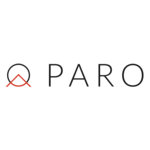Work-Life Balance Is More Important Than Compensation in 2022, Paro Research Finds

In search of flexibility and autonomy, knowledge workers say the ability to be their own boss is a main driver for joining the freelance economy
CHICAGO–(BUSINESS WIRE)–According to new research from Paro, a Chicago-based startup disrupting the way companies access on-demand financial expertise, both full-time and self-employed knowledge workers say that work-life balance is more important to them in 2022 than compensation. Thirty-nine percent of knowledge workers cited work-life balance as the most important element of their job in 2022, while 28% cited compensation. Only 13% said opportunities for professional growth were most important to them.
Amid the Great Resignation, Workers Want Less Stress
The study’s findings indicate that knowledge workers will prioritize jobs that offer both flexibility and autonomy in the New Year, with many choosing to explore freelance life. Nearly one in five (17%) knowledge workers who are not currently freelancing are considering joining the freelance economy in 2022. A vast majority of these respondents rank being their own boss (79%), schedule flexibility (76%), and ability to build their own business (60%) in their top three drivers for doing so.
Knowledge workers say things that bother them most about their current jobs are stress (35%), feeling unappreciated (28%) and too much bureaucracy (22%). Younger respondents also report being unexcited by their work, with 26% of people ages 18-34 saying they feel bored completing the same tasks every day at their current job.
“With the Great Resignation showing no sign of abating, it’s more important than ever that employers listen to the needs of their people and adapt accordingly,” said Anita Samojednik, CEO of Paro. “Our research made it clear that earning a larger paycheck is no longer a sufficient motivator for coping with inflexible schedules. Workers are embracing the silver linings of the pandemic – remote work and greater time with family – and the freelance economy is poised to welcome these professionals and help them take their careers to new heights.”
While Encouraged by Autonomy and Flexibility, Freelancers Face Their Own Set of Challenges
Nearly one-third (31%) of study respondents are already working as freelancers. When asked about the most challenging aspects of their jobs, these workers report they find managing their finances or adapting to changes outside of their control (35% for each respectively), being the final decision maker (30%), time management (23%) and acquiring customers (22%) to be the most difficult parts of freelancing. And while freelance knowledge workers have always found themselves wearing a number of hats, the pandemic made them think more about not having traditional corporate benefits than they did previously (64%).
“Understanding the motivators and pain points of the business professionals we work with is key to helping them grow as successful entrepreneurs,” said Michael Burdick, Co-founder, Chief Strategy Officer and Interim CFO at Paro. “Paro’s AI-powered platform and infrastructure removes the burdens of working for yourself by helping experts acquire quality clients, match with the right projects to align with their career goals, price themselves competitively, and collect payments. This makes it easier for people to live the lives they want and deepens the talent pool for companies seeking subject matter expertise to support growth goals.”
Methodology
This Paro poll, with data collection by Ipsos, was conducted between Dec. 20-28, 2021. For this survey, a starting sample of roughly 2,042 adults age 18+ from the continental U.S., Alaska, and Hawaii was interviewed online in English. To qualify for the survey, respondents had to be “knowledge workers,” defined for respondents as this: “Knowledge workers whose main capital is knowledge. Examples include programmers, physicians, pharmacists, architects, engineers, scientists, design thinkers, public accountants, lawyers, editors, and academics, whose job is to “think for a living” versus those who are paid to perform manual tasks.” A sample of 962 knowledge workers completed the rest of the survey, including n=299 freelance workers. The precision of Ipsos online polls is measured using a credibility interval. In this case, the poll has a credibility interval of plus or minus 3.6 percentage points for all knowledge workers, and plus or minus 6.5 percentage points for freelance knowledge workers.
About Paro
Paro provides flexible finance and accounting solutions to businesses via its network of highly vetted freelance experts. Through its proprietary AI-powered platform, Paro precisely matches clients with the best-fit experts to solve problems and drive growth. Its carefully curated expert community provides a range of financial services to clients, from basic bookkeeping and accounting to highly specialized corporate development and strategic advisory. By freeing these professionals from the constraints of traditional employment, Paro empowers them to pursue meaningful work on their own terms while helping clients achieve their business goals.
Learn more at Paro.io.
About Ipsos
Ipsos is the world’s third-largest Insights and Analytics company, present in 90 markets and employing more than 18,000 people.
Our passionately curious research professionals, analysts, and scientists have built unique multi-specialist capabilities that provide true understanding and powerful insights into the actions, opinions, and motivations of citizens, consumers, patients, customers, or employees. We serve more than 5000 clients across the world with 75 business solutions.
Founded in France in 1975, Ipsos is listed on the Euronext Paris since July 1st, 1999. The company is part of the SBF 120 and the Mid-60 index and is eligible for the Deferred Settlement Service (SRD).
ISIN code FR0000073298, Reuters ISOS.PA, Bloomberg IPS:FP www.ipsos.com
Contacts
Media:
John Austin, VP of Marketing
jaustin@paro.io
